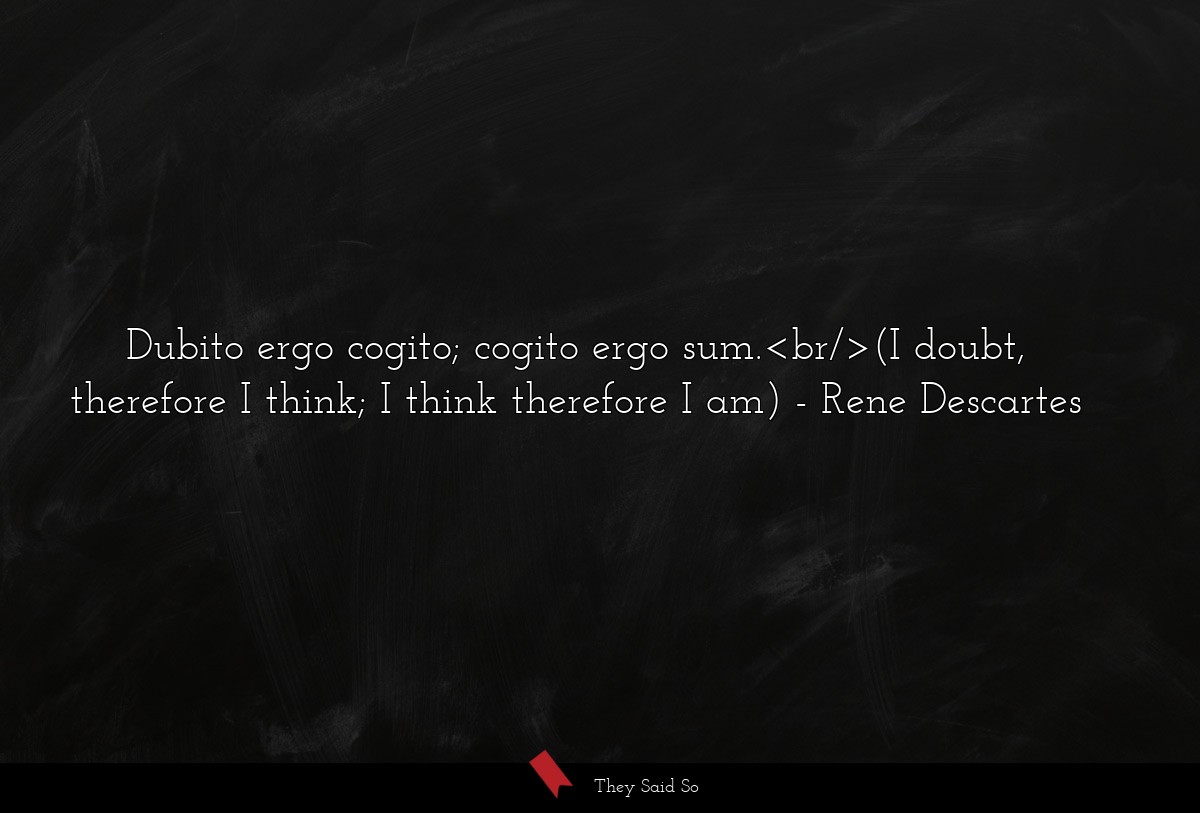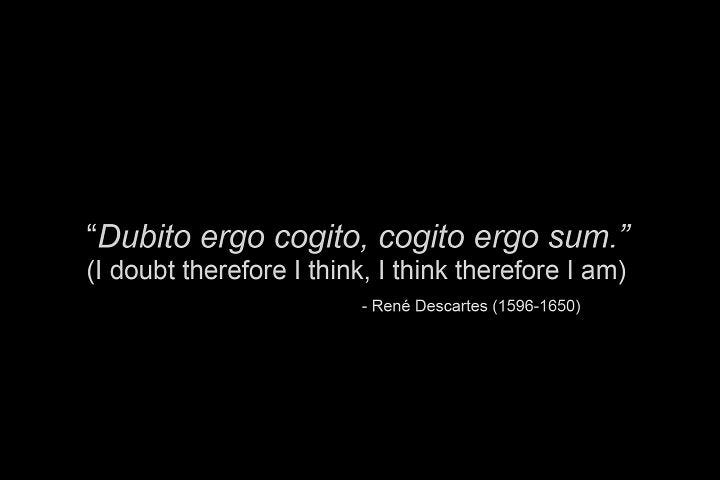Dubito Ergo Cogito Cogito Ergo Sum

V této podobě se věta u descarta nikde nevyskytuje a přídavek pochybuji dubito se objevuje až v předmluvě z roku 1765 podepsané patrně pseudonymem thomas která byla převzata do vydání v.
Dubito ergo cogito cogito ergo sum. The phrase originally appeared in french as je pense donc je suis in his discourse on the method so as to reach a wider audience than latin would have allowed. Dubito ergo cogito ergo sum. The patterns the lights the rainbows. Cogito ergo sum is a philosophical statement that was made in latin by rené descartes usually translated into english as i think therefore i am.
I think therefore i am dictum coined by the french philosopher rené descartes in his discourse on method 1637 as a first step in demonstrating the attainability of certain knowledge. Cousina a je k dispozici i na internetu bnf gallica nebo nedostupný zdroj. It is the only statement to survive the test of his methodic doubt the statement is indubitable as descartes argued in the second of his six meditations on first philosophy 1641. It appeared in latin in his later principles of philosophy.
Therefore i think therefore i am. Therefore i think. Cogito cogito ergo cogito sum i think that i think therefore i think that i am no matter how much we think we know about anything even the reality of our existence there must always remain an element of uncertainty. Facts assumptions and logic.
For the most part an argument consists of three parts.


















